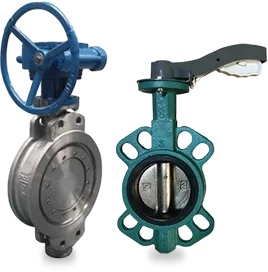ball valve stainless steel
Understanding Stainless Steel Ball Valves A Comprehensive Overview
When it comes to fluid control systems, the choice of valve is critical to ensuring effective management of flow. Among the various types of valves available in the market, stainless steel ball valves have steadily gained prominence due to their durability, reliability, and superior performance. This article delves into the features, benefits, and applications of stainless steel ball valves, highlighting why they are a preferred choice in various industries.
What is a Stainless Steel Ball Valve?
A stainless steel ball valve is a type of valve that uses a spherical disc, known as a ball, to control fluid flow. When the ball's hole (or port) is aligned with the flow, the valve is open, allowing for maximum flow. Conversely, when the valve is turned 90 degrees, the ball blocks the flow, and the valve is in the closed position. This straightforward mechanism provides rapid on-off control, making ball valves ideal for applications requiring tight shut-off.
Key Features of Stainless Steel Ball Valves
1. Material Composition Stainless steel is renowned for its resistance to corrosion, making it an ideal choice for environments where valves are exposed to harsh chemicals or moisture. It typically comes in grades such as 304 and 316, with 316 being more resistant to chlorides and acids.
2. Sealing Mechanism Stainless steel ball valves usually employ PTFE (Teflon) seals, which enhance durability and ensure minimal leakage, even under high pressures. This sealing mechanism is particularly helpful in applications where cleanliness and contamination prevention are critical.
3. Operating Pressure These valves can handle high pressure and temperatures, making them suitable for a wide range of applications, from water supply systems to industrial processes.
4. Flow Characteristics The straight-through flow design of a ball valve minimizes pressure drop and turbulence, ensuring efficient fluid flow. This design also makes it easy to clean and reduces the risk of blockages.
Benefits of Using Stainless Steel Ball Valves
1. Durability Stainless steel’s inherent strength and toughness contribute to the longevity of the valve, even in extreme conditions. This durability reduces the need for frequent replacements, thus lowering maintenance costs.
ball valve stainless steel

2. Versatility Stainless steel ball valves are suitable for various industries, including oil and gas, water treatment, food processing, and pharmaceuticals. Their ability to handle different types of fluids, including gases, liquids, and slurries, adds to their versatility.
4. Safety The reliable sealing and robust construction of stainless steel ball valves significantly reduce the risk of leaks, making them a safer option for handling potentially hazardous substances.
Applications of Stainless Steel Ball Valves
- Chemical Processing In chemical plants, valves must withstand corrosive substances, and stainless steel ball valves are perfectly suited for this application, resisting damage from harsh chemicals.
- Food and Beverage Industry Compliance with sanitary standards is crucial in this sector. The easy cleaning and corrosion resistance of stainless steel make these valves an excellent choice for food processing and beverage manufacturing.
- Water Treatment Stainless steel ball valves help regulate the flow of treated and untreated water, ensuring efficient operation in municipal and industrial water treatment facilities.
- Oil and Gas The robust nature of stainless steel ball valves is vital in the oil and gas industry, where they are used to control the flow of oil and natural gas safely.
Conclusion
Stainless steel ball valves stand out as an essential component in modern fluid control systems. With their combination of durability, versatility, and reliability, they serve a myriad of applications across diverse industries. By choosing stainless steel ball valves, businesses can ensure efficient operations, reduced maintenance, and enhanced safety, all while maintaining the integrity of the fluids they handle. As technology continues to evolve, the role of stainless steel ball valves in industrial applications will only become more pivotal, cementing their place as a preferred choice for engineers and facility managers worldwide.
-
The Key to Fluid Control: Exploring the Advantages of Ball Valves in Industrial SystemsNewsJul.09,2025
-
The Versatile World of 1, 2, and 3 Piece Ball ValvesNewsJul.09,2025
-
Stainless Steel Ball Valves: The Ideal Choice for Efficient Flow ControlNewsJul.09,2025
-
Optimizing Fluid Control with Ball Float ValvesNewsJul.09,2025
-
Manual Gate Valves: Essential for Control and EfficiencyNewsJul.09,2025
-
Everything You Need to Know About Butterfly ValvesNewsJul.09,2025
-
The Versatility of Wafer Type Butterfly ValvesNewsJul.08,2025




